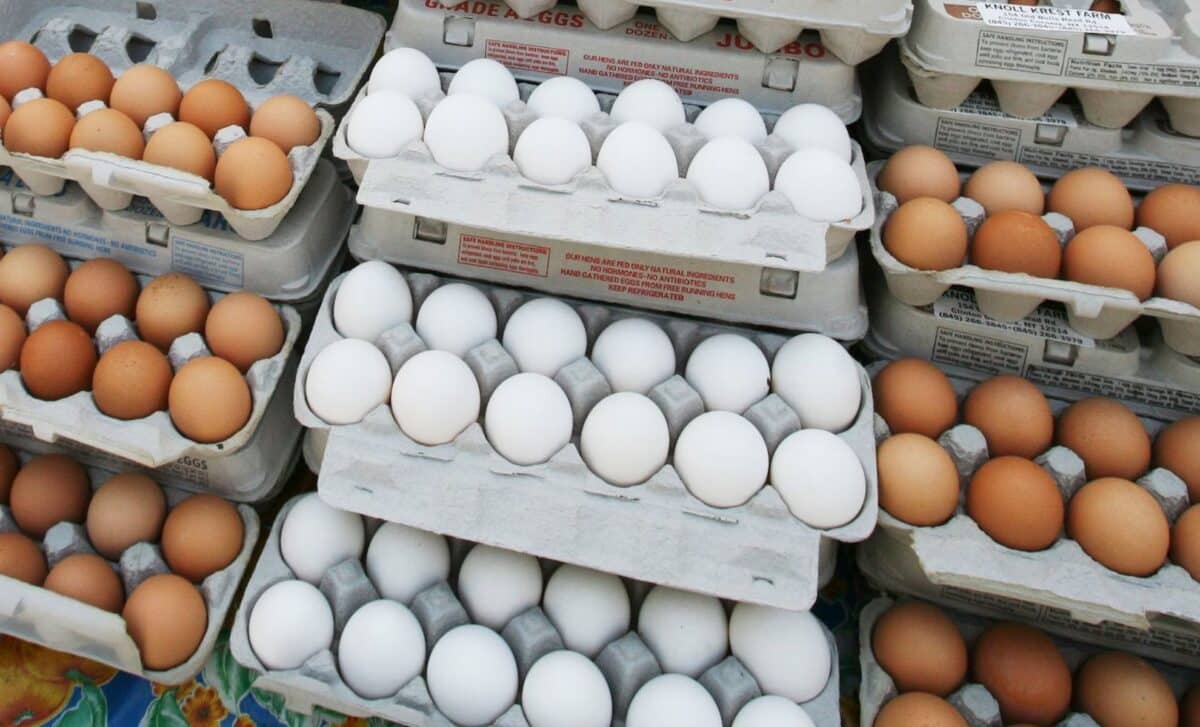Eggs are at the centre of a growing shortage in the United States, prompting a search for imports from Europe. Regulatory hurdles and limited EU supply may complicate Washington’s attempt to refill shelves ahead of Easter.
Despite political tensions and trade disputes, several European countries have been approached by the US Department of Agriculture to discuss potential egg exports. But public health rules, bird flu outbreaks and limited surplus supplies are posing challenges to any quick solution.
US Market Reels From Egg Shortage as Prices Surge
The United States is experiencing a significant shortfall in egg production following a major outbreak of avian influenza. According to the US Department of Agriculture (USDA), the country produced 720 million fewer table eggs in February 2025 compared to the same month the previous year—a decline of nearly 10%.
This disruption has driven wholesale prices to record levels, reaching a peak of $8.15 per dozen in late February before falling back to $3.27 by 21 March.
To address the supply deficit, the USDA has reached out to several European countries—including Germany, Italy, Poland and Sweden—in a bid to source eggs or processed egg products. Although some nations, such as Turkey and South Korea, have agreed to supply eggs, quantities and delivery timelines remain unspecified.
While the shortage primarily affects shell eggs, the US government has also scaled back its own egg exports and encouraged imports of liquid, frozen and powdered egg products. These are commonly used in food manufacturing and institutional catering, helping to relieve pressure on retail supply chains.
Cross-Border Egg Trade Hampered by Regulatory Gaps
A major obstacle in sourcing eggs from the European Union lies in the stark contrast between American and European food safety protocols. In the US, eggs must be washed and refrigerated to prevent salmonella contamination.
In contrast, EU regulations prohibit the washing of Grade A eggs, citing risks associated with removing the eggshell’s natural protective layer. As a result, most European eggs are sold unwashed and unrefrigerated.
According to Hans-Peter Goldnick, president of the German Egg Association, the US and EU operate “two systems that could not be more different”. This disparity makes it difficult for European producers to adapt to US import standards.
Some exceptions exist: Sweden, for example, sells washed eggs domestically, but has informed US officials that it lacks sufficient surplus to export.
Several EU member states have also been hit by their own outbreaks of avian flu, further limiting their ability to export. Poland, a leading EU egg exporter, confirmed it was assessing whether its farms could meet US sanitation and inspection requirements.
While limited shell egg exports may be possible, processed egg products are seen as a more viable option, according to Katarzyna Gawrońska of Poland’s National Chamber of Poultry and Feed Producers.









